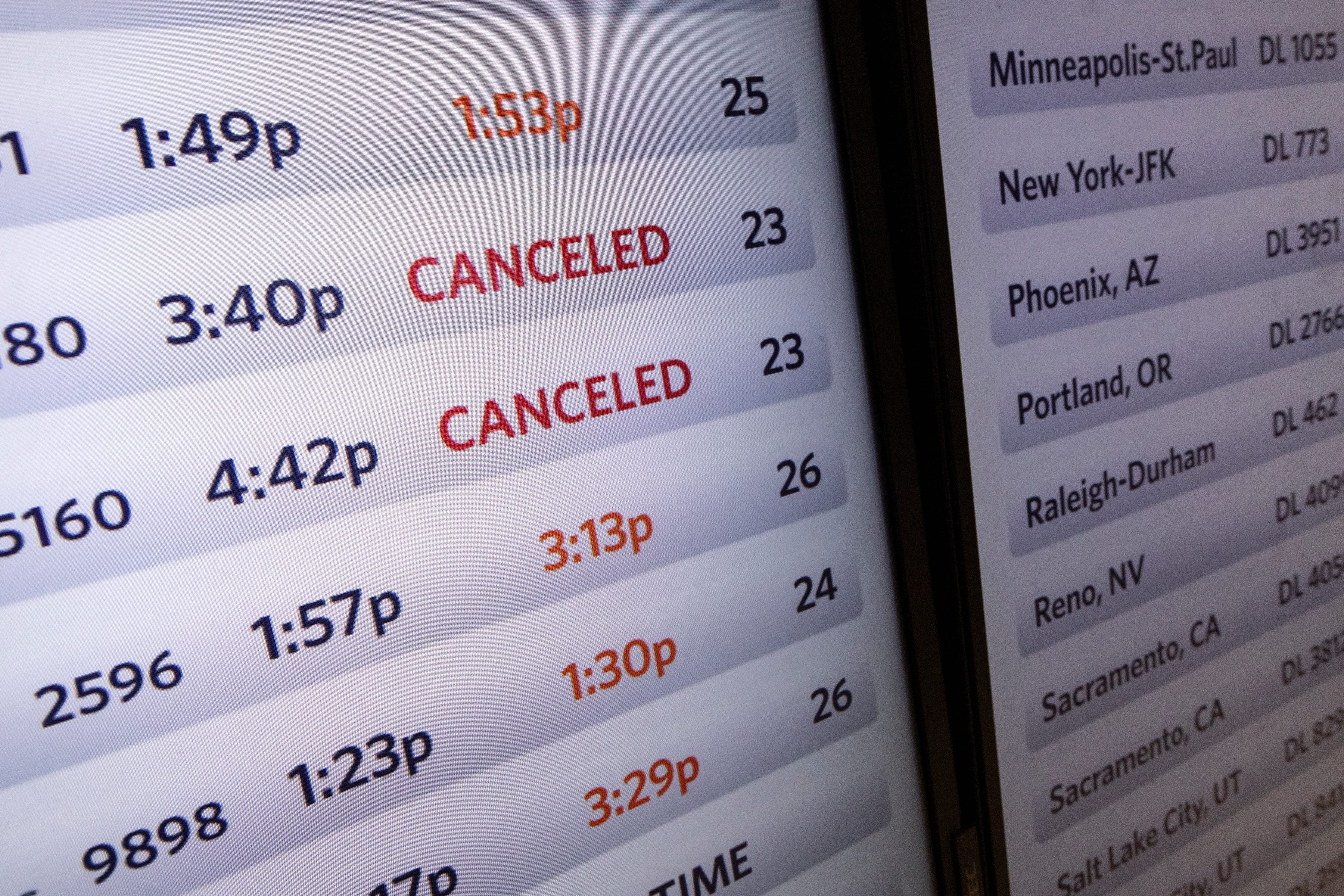
TRAVEL INSURANCE CLAIMS DENIALS UP 33%: HERE ARE 5 REASONS WHY YOU MAY NOT GET REIMBURSED
Travel insurance can help mitigate some unforeseen financial losses when a trip goes awry, from having to book an airport hotel following a flight cancellation or seeking medical care abroad.
With air travel at its busiest, an increasing number of travelers are turning to travel insurance before heading out on their trips – and putting it to good use. Travel insurance claim submissions have risen by 22% compared to last year, according to data from Squaremouth, a travel insurance comparison platform. And after a global tech outage that left thousands of air travelers stranded this summer, having travel insurance seems like a wise decision.
However, not all travel insurance claims are equal – or even accepted. Just having travel insurance is not a guarantee you'll get your money back for every travel mishap. "A lot of people go in with the understanding that everything bad that happened is covered by your travel insurance, but it’s not a catch-all," Jenna Hummer, public relations director at Squaremouth, told USA TODAY.
Start the day smarter. Get all the news you need in your inbox each morning.
Not only have travel insurance claims increased, but so have the rates of denial. This year, travel insurance claim denials are up 33% over last year, according to Squaremouth data.
Having your claim accepted depends on a variety of factors, such as your coverage policy and having adequate proof of purchases, like all your receipts and notes from doctors. Hummer advises everyone to "know your policy" and be clear about what is covered.
Here are the top five reasons your travel insurance claim could be denied:
Do I need travel insurance for a cruise? Here's how one cruise passenger got her $5,500 infirmary bill covered
Learn more: Best travel insurance
1. You're inconvenienced but not interrupted
While it would be great if travel insurance covered everything negative on your trip, that's not how it typically works.
"Things like not having a good time or having it rain the whole week on your beach vacation that you spent a lot of money on, those things are typically not covered," Hummer said.
2. You don't have a paper trail
If something that's under the policy does happen – like you get the flu and need to cancel your upcoming trip using travel medical coverage – make sure you keep that doctor's note and receipt for the visit for speedy processing. Claims often won't be reimbursed if you can't prove the expenses you incurred and authenticate your claim.
It's also worthwhile to keep your travel expenses well-organized. "It becomes a huge hassle later on when they're wading through all these receipts trying to get it together," Hummer said. (If you really can't find a receipt, bank or credit card statements usually work.)
3. Your disruption is actually not covered by the policy you purchased
Flight delays are almost always a headache, and unfortunately, your eight-hour delay might not be covered by your travel insurance policy.
"It has to be listed on your policy to be covered," Hummer said. Some policies have a travel delay benefit that only includes missed connections or if your flight is delayed by a certain number of hours. Read the fine print or even call insurance providers to make sure you have a full understanding of what's covered before purchasing.
When a disruption does occur, call your insurance immediately. "Don’t wait, don’t call the airline, call the insurance provider ... and they'll give you everything you need to do in order to get the claim processed," she said.
While there is such a coverage option known as Cancel for Any Reason that lets you cancel up to a day before your trip, Hummer doesn't typically recommend this. "It is a very expensive add-on," she said. If someone has "something in their mind that they may need to cancel their trip," such as mental health-related or a fear of flying, then it could make sense.
4. You bought travel insurance too late
A comprehensive travel insurance policy will cover anything due to inclement weather, like if your hotel loses power in a storm. However, once severe weather, like a hurricane, is publicized, it's too late to purchase travel insurance.
If inclement weather is already underway, there's definitely no possibility of coverage. "Once it's occurred, it's considered foreseen," Hummer said.
A good rule of thumb: buy your insurance as soon as you book your trip for the most coverage possible.
5. A preexisting medical condition makes you ineligible for your policy
Unfortunately, some travelers with preexisting medical conditions or illnesses may learn they're ineligible for the policy they purchased after the fact – they're also the ones who often need this type of coverage the most.
Many travel medical insurance policies don't provide coverage if you have a chronic condition or illness like heart disease or previous injuries, are pregnant, or are traveling abroad for an opt-in medical procedure like a facelift. "That’s one of the biggest misconceptions that we’re constantly trying to educate travelers about," Hummer said. Even just visiting the doctor for a bad knee without an official diagnosis of a condition could render a preexisting medical condition by your provider.
Many providers will cover individuals with preexisting medical conditions, provided there haven't been symptoms, doctor visits, or worsening of the condition during the "look-back period," which generally ranges from 60 to 180 days but varies based on your provider. "You really have to make sure you have the coverage that you need," Hummer said. "The best way to do that is call the travel insurance provider and have them walk through your coverage."
It's also important to do this quickly once you book your trip since preexisting medical condition waivers are time-sensitive.
This article originally appeared on USA TODAY: Travel insurance claims denials up 33%: Here are 5 reasons why you may not get reimbursed
2024-09-12T07:16:54Z dg43tfdfdgfd